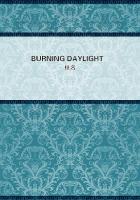So far as possible manufactures of cloth, linen, lace, etc. ought to be set up in the remote provinces; and, in the neighbourhood of coal mines or forest, which are useless by their distance, manufactures of tools of iron, tin, copper, etc. In this way finished manufactures could be sent to the capital with much less cost of carriage than the raw materials to be worked up in the capital and the subsistence of the artisans who would work upon them there. This would save a quantity of horses and waggoners who would be better employed for the benefit of the state. The land would serve to maintain on the spot workmen and useful mechanics; and a multitude of horses would be saved who serve only upon unnecessary transport. In this way the distant lands would yield higher rents to the proprietors and the inequality of the circulation of the provinces and the capital would be better proportioned and less considerable.
Nevertheless to set up manufactures in this way would need not only much encouragement and capital but also some way to ensure a regular and constant demand, either in the capital itself or in foreign countries, whose exports in return may be of service to the capital, to pay for the merchandise which it draws from these foreign countries or for the return of silver in kind.
When these manufactures are set up perfection is not at once attained. If some other province have them better or cheaper or owing to the vicinity of the capital or the convenience of a sea or river communication have their transport considerably facilitated, the manufactures in question will have no success.
All these circumstances have to be considered in setting up a manufactory. I have not proposed to treat of them in this essay, but only to suggest that so far as practicable manufactures should be set up in provinces distant from the capital, to render them more considerable and to bring about there a circulation of money less disproportionate to that of the capital.
For when a distant province has no manufactory and produces only ordinary raw materials without water communication with the capital or the ocean, it is astonishing how scarce money is there compared with that which circulates in the capital and how little the best lands produce to the prince and to the proprietors who reside in the capital.
The wines of Provence and of Languedoc sent to the north round the Straits of Gibraltar by long and difficult navigation, after having passed through the hands of several dealers yield very little to the Paris owners of the land.
It is however necessary that these distant provinces should send their produce, in spite of all the drawbacks of transport and distance to the capital or elsewhere either in the state or in foreign countries in order that the returns should provide for payment of the balance due to the capital. But these products would be mostly consumed on the spot if there were works or factories to pay this balance, in which case the number of inhabitants would be much larger.
When the province pays the balance only with its produce which yields so little in the capital having regard to the expenses of distance, it is evident that the proprietor living in the capital pays the produce of much land in the country to receive little in the capital. This arises from the inequality of money, and this inequality is owing to the constant balance due from the province to the capital.
At present if a state or kingdom which supplies all foreign countries with work of its own manufacture does so much of this commerce that it draws every year a constant balance of money from abroad, the circulation will become more considerable there than in foreign countries, money will be more plentiful there, and consequently land and labour will gradually become dearer there. It will follow that in all the branches of commerce the state in question will exchange a smaller amount of land and labour with the foreigner for a larger amount, so long as these circumstances continue.
But if some foreigner reside in the state in question he will be in about the same situation and circumstances as the proprietor at Paris who has his land in distant provinces.
France, since the erection in 1646 of manufactories of cloth and other works since set up, appeared to trade, at least in part, in the way described. Since the decay of France, England has taken possession of this trade; and all states appear flourishing only by the larger or smaller part they have in it.
The inequality of the circulation of money in the different states constitutes the inequality of their respective power, other things being equal; and this inequality of circulation is always respective to the balance of foreign trade.
It is easy to judge from what has been said in this chapter that the assessment by taxes of the royal tithe, made by Mr de Vauban, would be neither advantageous nor practicable. If the taxes on land were levied in money proportionable to the rents of the proprietors, it would be fairer. But I must not wander from my subject to show the inconvenience and impossibility of Mr de Vauban's proposal.















